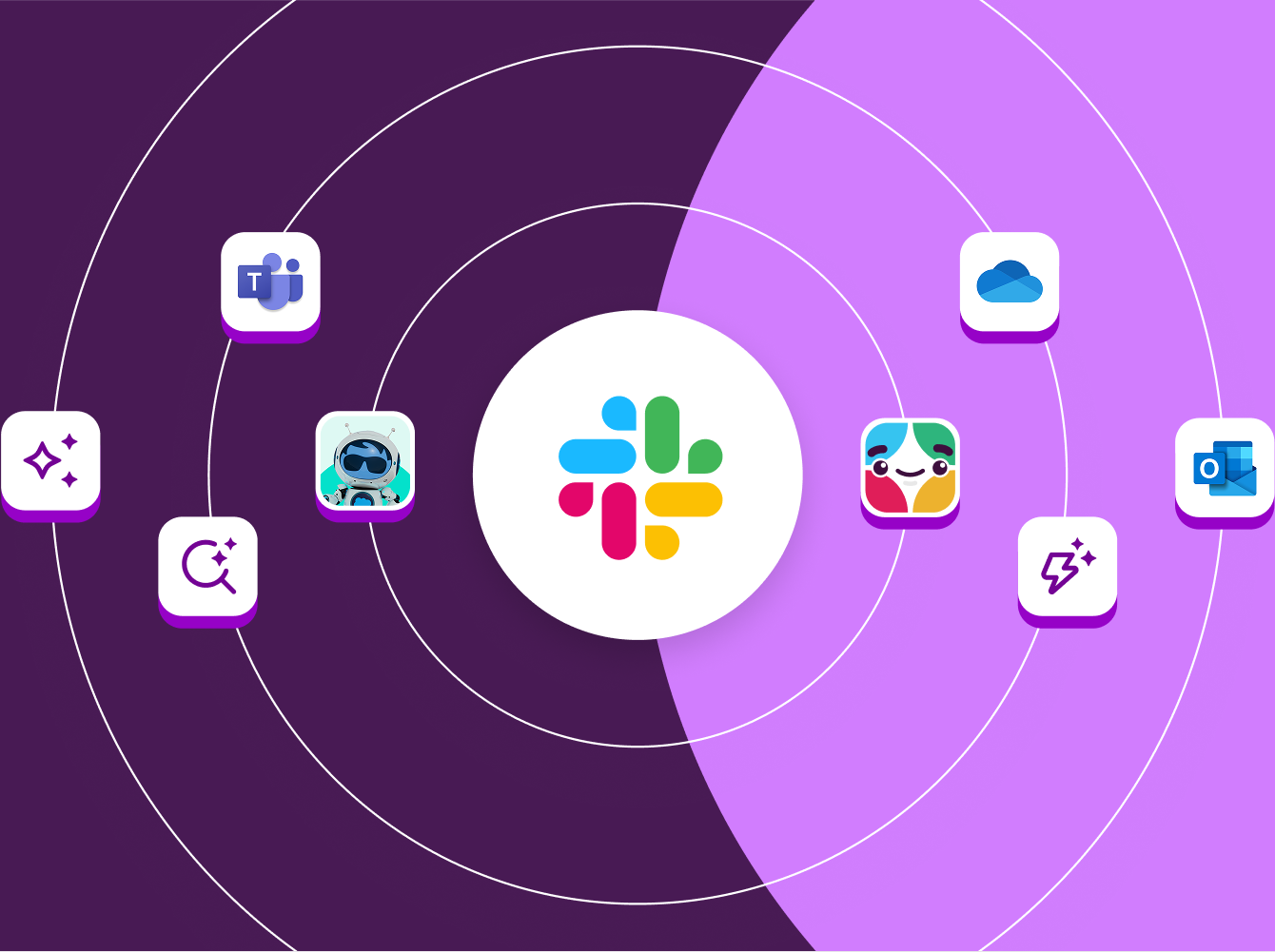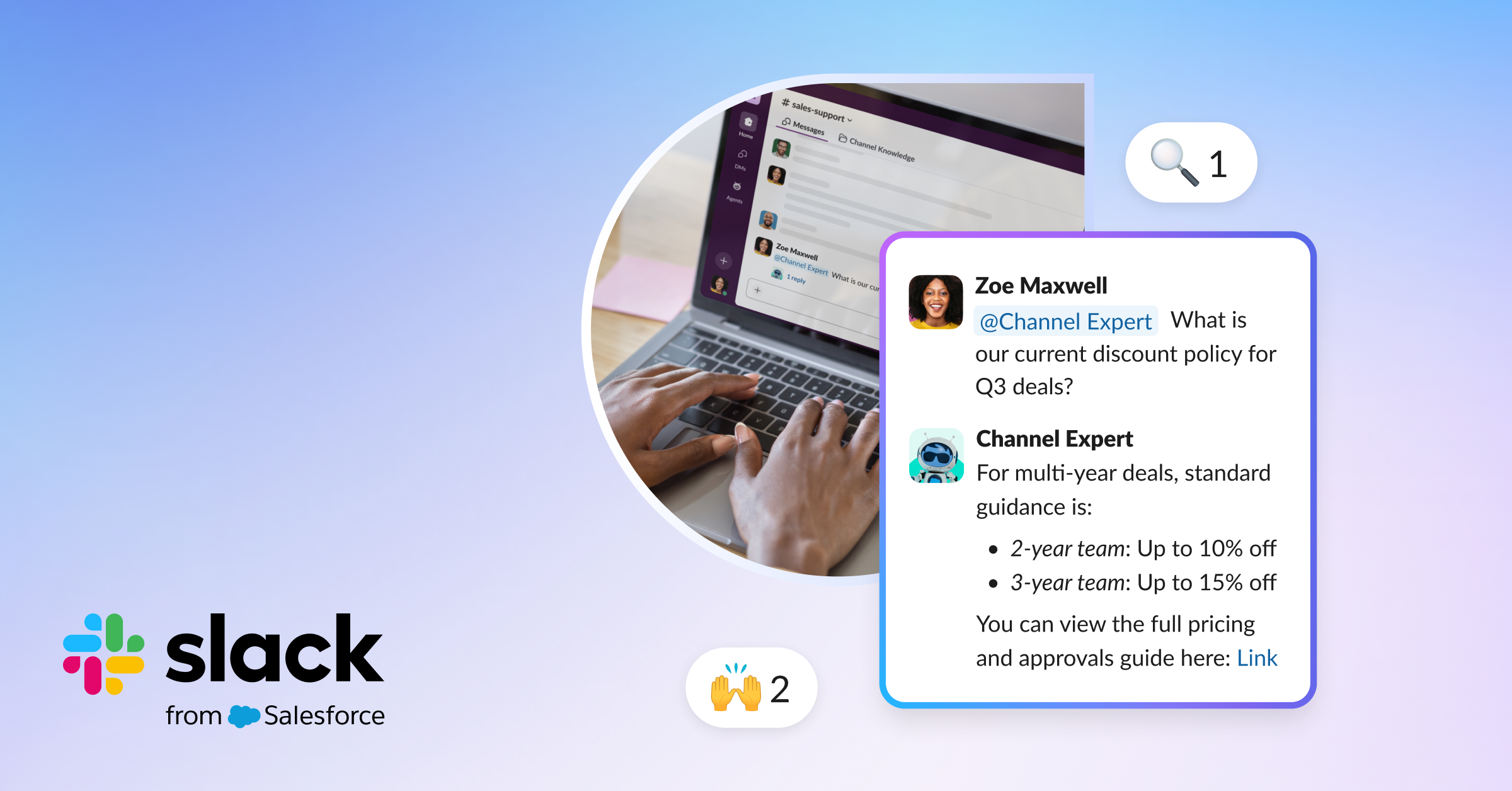At some point in your work life, you’ve surely forgotten something that should be obvious. Maybe it was the postcode for your main office or how to access your company’s shared printer. Although these situations are common, having someone to tap on the shoulder for a quick answer isn’t always an option. Enter Slackbot – our friendly chatbot that welcomes you into Slack, dutifully sends you reminders and tries to answer any product questions.
While these functions are no doubt helpful, there’s an additional feature called custom responses that lets you mould Slackbot to your individual workplace. It lets you program Slackbot to respond in a particular way whenever a specific word or phrase is posted in Slack.
There are a lot of smart ways to use custom responses with Slackbot, both to help get work done and to make people smile.
First of all, how does it work?
Start with the ‘Customise Slackbot’ option in your workspace menu. Click on the Slackbot tab, and you’ll see an option to add new responses (provided that your Slack administrator allows everyone to add new ones). You can put any text you like on the input side (what you type in a message) and output side (how Slackbot will respond).

A word of caution: Triggering Slackbot to respond to common, often-used phrases in a busy team can be distracting or annoying. These will fire in any channel, so you may want to test them out in a DM to yourself first.
How to get the most from Slackbot at work
The most useful Slackbot response is one that fires rarely but provides information exactly when you need it. Ideal situations are when you didn’t know you needed help, but Slackbot is there to provide some guidance. Let’s look at some examples.
Tracking down the office Wi-Fi
The office Wi-Fi password is one of those things that you hear once and forget about after it’s stored in your devices. But when someone is looking for it or requesting access in Slack, the phrases ‘guest Wi-Fi’ or ‘Wi-Fi password’ usually come up. Having Slackbot automatically fire the network name and password in this situation is not only incredibly helpful, it saves plenty of time, too.
Rarely used – yet infinitely valuable – reference materials
Some teams add unique symbols in ways that don’t occur in regular speech as a Slackbot trigger to reference material. A team might have !staging spit out the long, arcane URL to their staging server where you test out your website. !officemaps could display a regularly updated image of everyone’s assigned desk location, and !colours could list all your company’s approved colours used in logos and materials.

Meanwhile, many offices still have phone systems that require special codes to dial out or fetch your messages. In the event that you have to make a good old-fashioned phone call, a Slackbot response for ‘long distance’ or ‘phone code’ or ‘phone messages’ that posts the necessary instructions can be a handy resource.
Light reminders about workplace language
Giving people a gentle nudge when certain words or phrases are posted is another popular use of Slackbot custom responses. At the digital services agency 18F, they’ve pushed for more inclusive language inside their walls, and this includes Slack. When someone posts a phrase such as ‘hey guys’, an automatic reminder pops up featuring other words that can convey the same information without alienating anyone.

This same feature can help to guide everyone when your company renames projects or products. Get everyone in the habit of using the new terms that match up with customer experience. For example, if Project Alpha is now known as the Head Start initiative, Slackbot can pipe up when others fall back to the old name.
Funny and delightful responses
There are plenty of clever and amusing uses of custom responses as well, but we’ll mention just a few of our favourites.
Slackbot can actually respond to the same phrase with one of any random number of answers that you set. This means that it can give you a heads or tails to the phrase coinflip; roll a set of dice for you; let you pick a card, any card; or provide unlimited answers to any eight-ball question.

We’ve even heard of teams that play a ‘secret word of the day’ game, in which they set a custom response to an obscure word that is rarely used (such as insidious or plethora or gargantuan). Slackbot fires off a celebration when someone utters it, and some teams give the winner credit at a nearby coffee shop as a reward.
Custom Slackbot responses are an often overlooked feature of Slack, but they can be useful for answering questions and giving people a helpful nudge at just the right time. (Oh, and should you have some free time, you can even recreate the famous Abbott and Costello Who’s on First routine entirely with Slackbot.)










